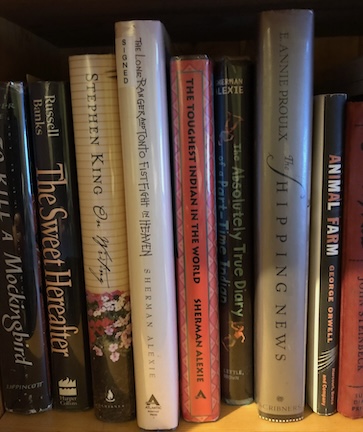I so enjoy visiting the places where famous creatives once lived and worked. I got a healthy helping of that when I lived in New Mexico. Writers. Artists. Today, I will focus on D.H. Lawrence. Yes, he lived there.
I was inspired after Poetic Outlaws shared Lawrence’s poem, On That Day. I shall put roses on roses, and cover your grave/ With multitude of white roses: and since you were brave/ One bright red ray.
The poem brought me back to the several visits I made to Lawrence’s grave in San Cristobal, an unincorporated area north of Taos with less than 300 people. The 160-acre D.H. Lawrence Ranch includes two modest cabins and a chapel-like memorial for Lawrence, in which his ashes are mixed in a block of cement or so the legend goes.
Lawrence and his wife Frieda first visited New Mexico in September 1922, when they were invited by Mabel Dodge Luhan, a wealthy patron of the arts who settled in Taos. (Luhan brought other luminaries of the day such as Georgia O’Keeffe, Ansel Adams, and Aldous Huxley.) The Lawrences came three times— staying a total of 11 months. On the second visit, Luhan gifted the ranch to Lawrence and Frieda, who gave her the original manuscript for Sons and Lovers.
The ranch’s cabins where the Lawrences and their artist friend, Lady Dorothy Brett, lived are made of Ponderosa pine logs cut in the 1880s and adobe plaster. The Lawrences lived in the three-room Homesteader’s Cabin, and Brett in the one-room cabin, dubbed the Dorothy Brett Cabin. Lawrence, who was on a self-imposed exile from England, wanted to start a utopian society and Brett was the only one to take him up on his idea.
The D.H. Lawrence Ranch is about 18 miles north of Taos, where I lived. I can only imagine what a rough journey that must have been when he stayed there. Even now the last leg is seven miles on a dirt forest service road. (Watch out for cows wandering along the road.)
Then there is the Lawrence tree. He wrote in long hand beneath this grand pine and O’Keeffe later memorialized it in her painting, The Lawrence Tree. While here Lawrence wrote a short novel, St. Mawr, a biblical drama, David, and parts of The Plumed Serpent.
Lawrence died in France in 1930. Five years later, Frieda had his remains exhumed then cremated. His ashes were brought to the ranch.
After a dispute with Luhan and Brett over what to do with Lawrence’s remains, the story goes Frieda mixed his ashes with wet cement in a wheel barrow and used it for his memorial altar. The altar has his initials and above it a statue of his personal symbol, the phoenix. Visitors often leave mementos.
Frieda, who entrusted the property to the University of New Mexico, is buried outside.
During my visits, I reveled that a giant in the literary world would choose even for a short time to live in this primitive and remote spot. My first experience with Lawrence was reading his classics Lady Chatterly’s Lover and Sons and Lovers in a one-room cabin with no running water or electricity in New Hampshire. But that is another story.






